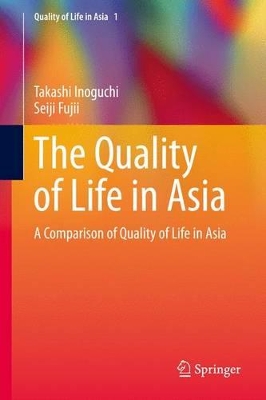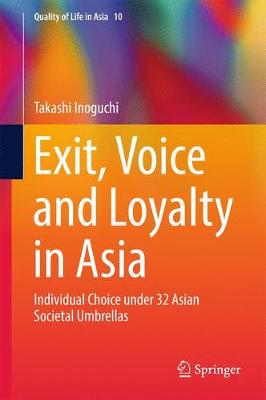Quality of Life in Asia
2 primary works
Book 1
This book studies and compares quality of life in 29 countries/societies in Asia: Afghanistan, Bangladesh, Bhutan, Brunei, Cambodia, China, Hong Kong, India, Indonesia, Japan, Kazakhstan, Kyrgyzstan, Korea(South), Laos, Malaysia, Maldives, Mongolia, Myanmar, Nepal, Pakistan, the Philippines, Singapore, Sri Lanka, Taiwan, Tajikistan, Thailand, Turkmenistan, Uzbekistan, and Vietnam. We utilize the AsiaBarometer Surveys conducted annually from 2003 through 2008. We focus on the notion of subjective quality of life and conceptualize it as two levels, global and domain. After we explain about the AsiaBarometer Survey Project, we explore current country profile, demographics, lifestyles, value priorities, specific life domain assessment and overall quality of life. We then estimate the independent effects of demographics, lifestyles, value priorities, life domain assessment on the overall quality of life within each society. As well as comparing the results between nations, we look for key generalized characteristics of life quality for the entire and sub-regions of Asia.
Book 10

